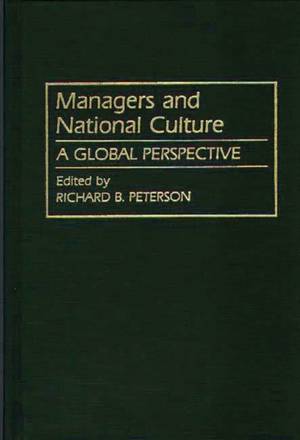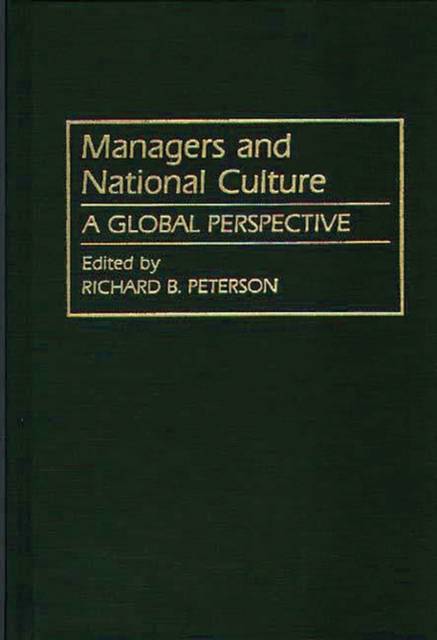
- Retrait gratuit dans votre magasin Club
- 7.000.000 titres dans notre catalogue
- Payer en toute sécurité
- Toujours un magasin près de chez vous
- Retrait gratuit dans votre magasin Club
- 7.000.0000 titres dans notre catalogue
- Payer en toute sécurité
- Toujours un magasin près de chez vous
Description
Managers and National Culture primarily looks at the role of managers in private-sector companies in fifteen advanced and newly industrializing nations throughout the world: the United States, Britain, France, Germany, Sweden, Austria, Russia, Poland, Israel, Saudi Arabia, Japan, South Korea, the Territory of Hong Kong, the People's Republic of China (PRC), and Malaysia. The authors are experts in their knowledge of the countries they write about; and as a group, they are able to provide greater insight about particular nations than could be offered by one person trying to cover such a diverse nations. The editor then discusses the similarities and differences both within and across these fifteen nations.
The book begins with an introduction by Peterson, the editor of the volume. Here he provides a brief historical overview of the developments in International Management since World War II, as well as the rapid internationalization and globalization of the world economy in recent years. The next chapters discuss the role of managers in the fifteen countries. Each chapter uses a common outline, including: the definition of managers; the growth trends in managerial employment; the status and ideology of managers in that culture; the link between societal values and managerial values and behavior; the ways that managers are recruited, selected, appraised, and compensated; the role, if any, of managers in labor relations; and future trends regarding managers. The book concludes with the editor's discussion of the similarities and differences of national managers.Spécifications
Parties prenantes
- Auteur(s) :
- Editeur:
Contenu
- Nombre de pages :
- 474
- Langue:
- Anglais
Caractéristiques
- EAN:
- 9780899306025
- Date de parution :
- 30-04-93
- Format:
- Livre relié
- Format numérique:
- Genaaid
- Dimensions :
- 156 mm x 234 mm
- Poids :
- 843 g

Les avis
Nous publions uniquement les avis qui respectent les conditions requises. Consultez nos conditions pour les avis.






